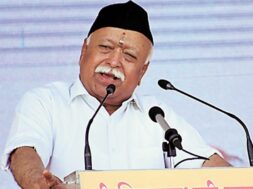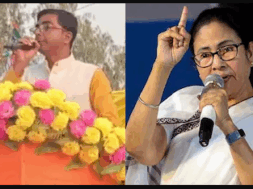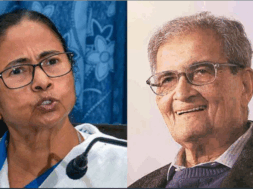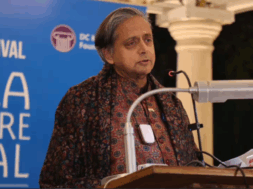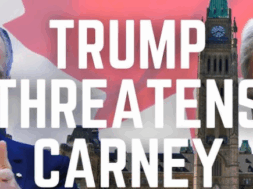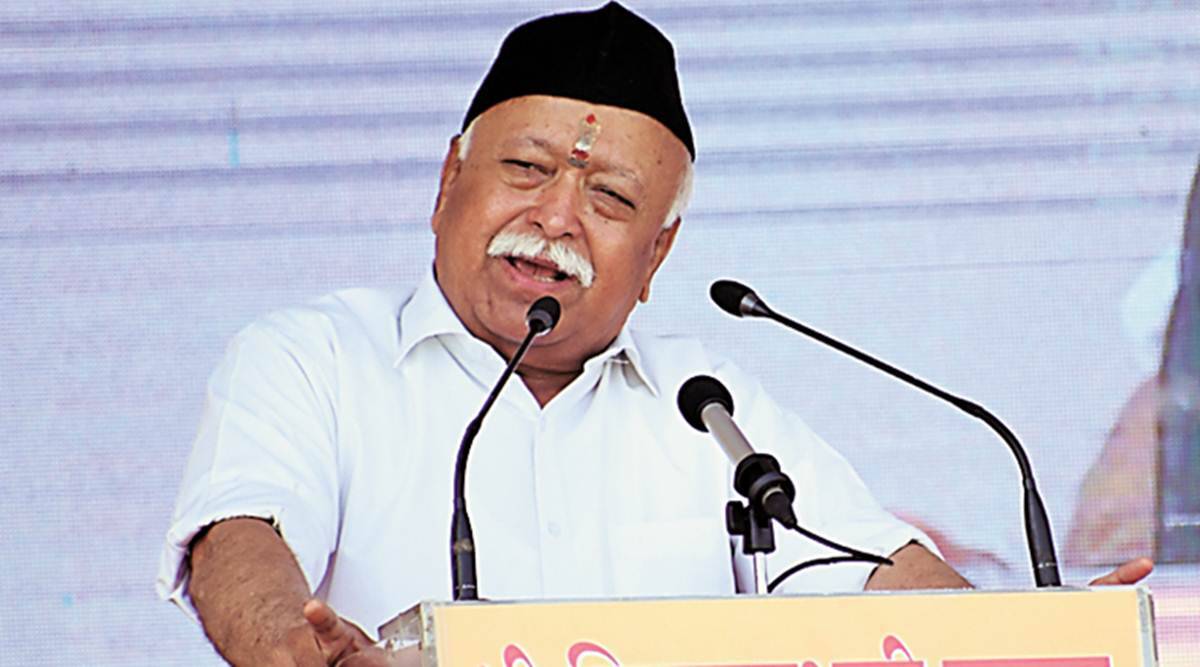
Manas Dasgupta
NEW DELHI, July 21: The Rashtriya Swayamsevak Sangh (RSS) chief Mohan Bhagwat reassuring the Indian Muslims said on Wednesday that the Citizenship Amendment Act (CAA) and the National Register of Citizens (NRC) have nothing to do with Hindu-Muslim divide and communal narrative surrounding the two issues were being peddled by some to gain political mileage.
Reaffirming that the two acts would not harm the Indian Muslims, Bhagwat, who is on a two-day visit to Assam, emphasised that no Muslim would face any loss due to the citizenship law.
Referring to Jawaharlal Nehru, Bhagwat insisted the CAA and NRC were not against any Indian citizen. “The (1950) Nehru-Liaquat Pact clearly stated that each country would protect its minorities. India has been following it, Pakistan failed to do so,” Bhagwat said after launching a book in Guwahati, titled ”Citizenship debate over NRC and CAA-Assam and the Politics of History’ by Gauhati University professor Nani Gopal Mahanta.
The CAA was passed in 2019 to fast-track the citizenship process for non-Muslims from Bangladesh, Afghanistan, and Pakistan. The opponents of the law insist it is discriminatory and unconstitutional as it links faith to citizenship in a secular country. CAA triggered fears of a fresh influx of immigrants into Assam from Bangladesh and sparked protests in the state. Its opponents in Assam say the legislation violates the 1985 Assam Accord signed following an agitation for the detection and deportation of undocumented immigrants irrespective of their faith. The accord set March 24, 1971, as the cut-off date for the detection. A process in line with the accord was carried out in Assam and led to the exclusion of around two million people from the NRC.
Bhagwat said Indians always welcomed outsiders, “but designs by some to impose their language, religion and food habits on others led to fears”. He said since 1930, there have been attempts to increase the Muslim population in a “planned manner” to “exercise dominance and slowly turn this nation into Pakistan”. “This was true for Punjab, Sindh, Assam, and Bengal. The plan worked to an extent as India got partitioned and Pakistan was created. But it did not happen entirely as planned and Assam did not go to Pakistan, though part of Bengal and Punjab got divided.” Bhagwat said this forced some persecuted people in Pakistan to come to India seeking refuge.
“Respect for other religions, cultures, and languages are part of India’s culture. We do not have to learn about secularism, socialism, democracy from anyone else in the world. Our Constitution clearly defines rights and duties. The problem arises when people want all rights and do not want to follow the duties.”
Bhagwat said they cannot ignore the plight of minorities in Pakistan and Bangladesh. “The provisions of CAA are meant for those who were persecuted in those countries and came to India for refuge. It is not for those who came to India without facing any persecution. We reach out to the majority communities, too, in these countries during a calamity… So if there are some who wish to come to our country due to threats and fear, we will definitely have to help them out,” Bhagwat said.
He maintained exercises such as NRC happen in every country to find out who among those residing in a nation are citizens. “It is the duty of all governments to keep a tab on people (who stay in a country illegally). NRC is just one way of finding that out.”
He said the process has been targeted for political mileage. “And for that, some people will turn both CAA and NRC into something between Hindus and Muslims while that is not the case. The matter is in the political domain as the government is involved in it… A section of people wants to get political mileage by creative a communal narrative around these two issues,” he added.
Assam chief minister Himanta Biswa Sarma stressed the protests against CAA in other parts of the country were completely different from the ones in Assam. “While the former sought inclusion of Muslims on the list of communities mentioned in the legislation (CAA), the protests in Assam were against the inclusion of all communities and was against the legislation itself,” he said. “The viewpoint of those opposing CAA from the national perspective is very communal. They want the inclusion of Muslims in CAA. But in Assam, it is different as those who are protesting do not want either Hindu migrants or Muslims who migrated to India to become citizens.”
Sarma said they have a duty towards the persecuted people. “That is why I am a supporter of CAA and will remain one. But at the same time, we need to take measures to protect our Assamese identity and culture. I am sure Assamese people will find a way out where we will balance everything and contribute to nation-building.”
